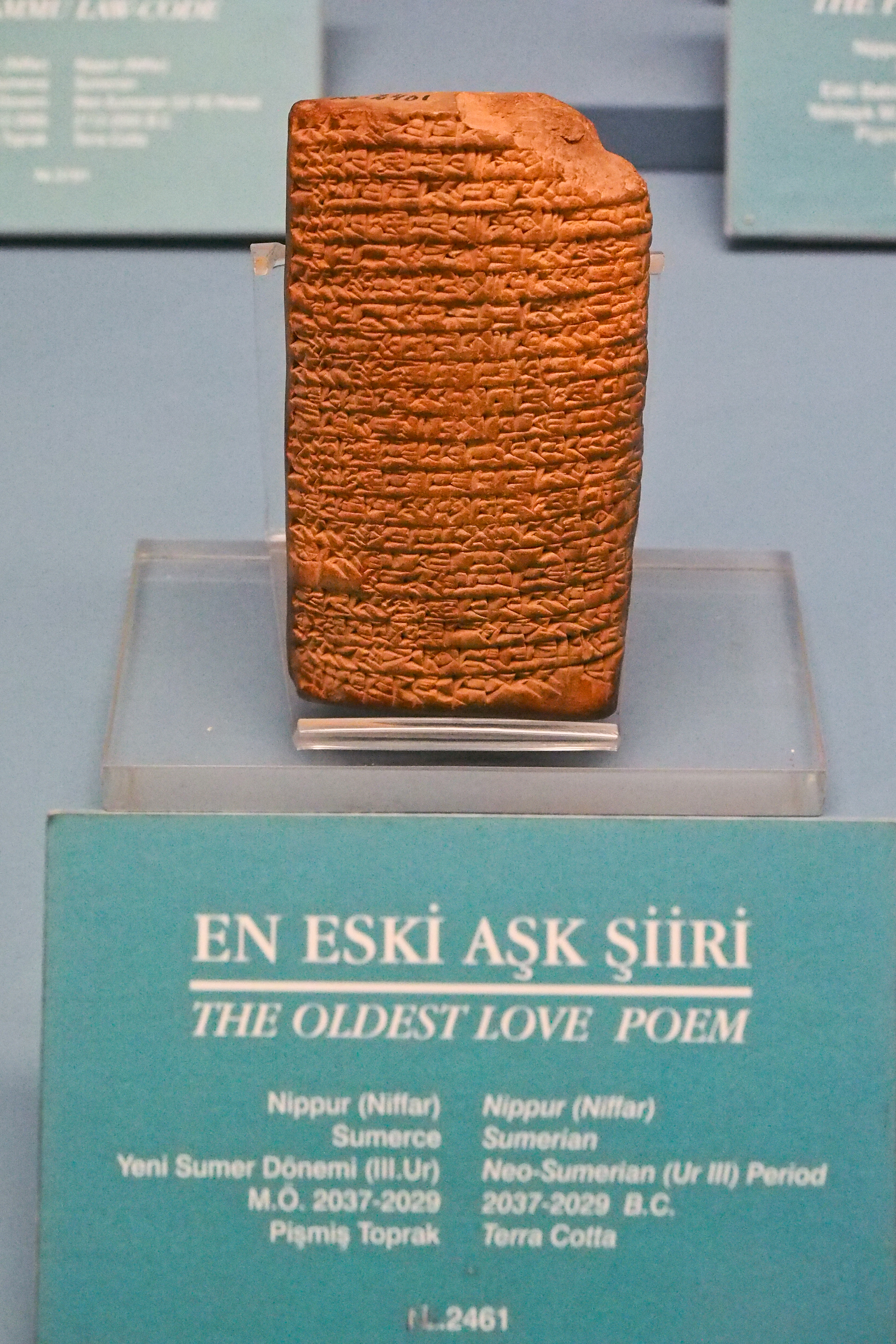
“Bridegroom, dear to my heart,
Goodly is your beauty, honeysweet,
Lion, dear to my heart,
Goodly is your beauty, honeysweet.You have captivated me, let me stand tremblingly before you.
Bridegroom, I would be taken by you to the bedchamber,
You have captivated me, let me stand tremblingly before you.
Lion, I would be taken by you to the bedchamber.Bridegroom, let me caress you,
My precious caress is more savory than honey,
In the bedchamber, honey-filled,
Let me enjoy your goodly beauty,
Lion, let me caress you,
My precious caress is more savory than honey.Bridegroom, you have taken your pleasure of me,
Tell my mother, she will give you delicacies,
My father, he will give you gifts.Your spirit, I know where to cheer your spirit,
Bridegroom, sleep in our house until dawn,
Your heart, I know where to gladden your heart,
Lion, sleep in our house until dawn.You, because you love me,
Give me pray of your caresses,
My lord god, my lord protector,
My Shu-Sin, who gladdens Enlil’s heart,
Give my pray of your caresses.
Your place goodly as honey, pray lay your hand on it,
Bring your hand over like a gishban-garment,
Cup your hand over it like a gishban-sikin-garmentIt is a balbale-song of Inanna.”
Translation from Samuel Noah Kramer’s History Begins at Sumer.
Puisi ini di tulis dalam huruf Sumeria Kuno yang di sebut Cuneiform.
Interpretations:
"It is believed that the poem is a script for the yearly "sacred marriage", a rite in which the king would symbolically marry the goddess Inanna, mate with her, and ensure fertility and prosperity for the coming year. A priestess would probably represent Inanna, the Sumerian goddess of fertility, and the king Shu-Sin would represent Dumuzi, the god of shepherds, on the eve of their union."
"Variants of the poem may have been sung during ritual ceremonies commemorating the divine marriage between the two gods all over the ancient Near East, particularly in Egypt.[9][4] The translation of this tablet shed light on the Song of Solomon in the Old Testament, because some phrases are similar to the poems sung during such fertility feasts, as well as Sumerian weddings."
Sumber: https://en.wikipedia.org/wiki/Istanbul_2461
Comments
Post a Comment